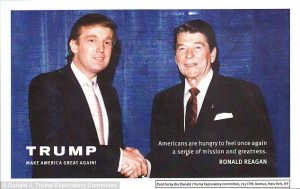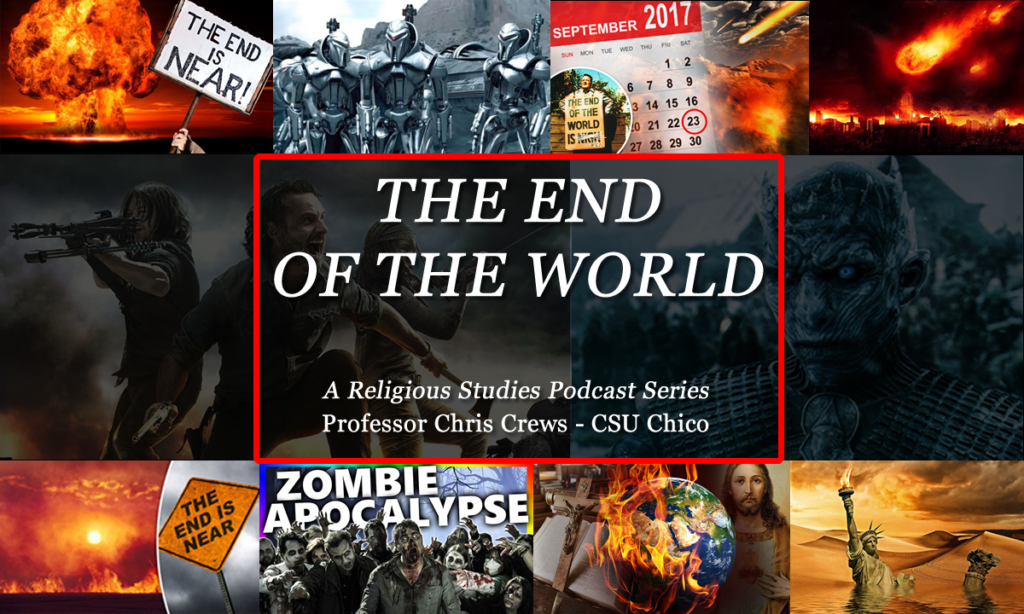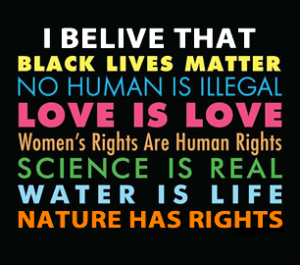The Blindness of Political Science and the Rise of Trump
I ran across this excellent post at Vox asking scholar Norman Ornstein why he pegged the Trump rise while most other political scientists simply dismissed the rise of Trump as an impossibility. I think this speaks to the deeper problems in much of political science and social science today: the irrelevant nature of much mainstream political analysis which no longer understand reality. Instead many scholars have built entire worlds of theories and explanations based on models and assumptions not actually grounded in observations of reality.
The Political Science of Trump
This comment from Ornstein in the interview sums up this problem perfectly:
But I have a couple of problems with a lot of people in my profession. Political scientists in some ways, just like journalists, pursue false equivalence. They do not want to suggest anything flatly or that one party is to blame. There’s a kinda cynicism whenever you suggest something might be different than it was in the past. “Oh, no, it’s always the same.”… And to be honest, I was growing increasingly frustrated watching the cable news analysis and reading what so many of my peers, including the political scientists, were saying, which was glib dismissals. They relied on everything that had happened, with the belief that you could just, as far into the future as you could foresee, project what had happened before into what would happen now. That just seemed to me to be wrong-headed.
While this apparent blindness on the part of many political scientists is not new–the same could be said for their dismissal of Sanders in this election cycle, and of many other important events in earlier years, such as the 2007/08 global market crash or the more recent rise of ISIS and their various regional permutations.
But what I find most interesting is that it takes a conservative think tank scholar to clearly see just how out of touch the political right has become from its roots in recent years. While Ornstein pins some of the blame on the rise of Moral Majority politics and figures like Newt Gingrich in the early 90s who had a general hostility to governance, I think the issue is deeper in terms of the blindness of much scholarly analysis. It’s really only in the left-leaning online media that I have seen any serious analysis that is critical of the mainstream political narrative to date. A few of the big papers tried to get in on the trend but ultimately failed to deviate from swallowing the “party politics” line in the end.
Media & Politics
The emergence of a sophisticated right-wing propaganda machine (radio/tv/print/web) during that same time is perhaps the best evidence of this. Yet most political scientists not focused on media studies and ideology still remain largely blind to its corrosive effects–as if TV pundits on Fox News spinning tales of deception had always been normal news stuff. As an avid consumer of 1980-90s TV, I can assure you, it was not. PBS Newshour and 60 Minutes still reported as if actual reality and news mattered. As a brief aside, I think it’s important to link party politics with media politics on this point, especially given the increasingly radical and partisan nature of conservative media outlets.
Last month Fox News captured 9 of the top 10 cable news slots, according to the latest AdWeek numbers, with the O’Reilly Factor alone bringing in 2.8 million viewers. That number jumped to 3.6 million when Donald Trump made a guest appearance (May 4th). The liberal cable news counterparts–the Daily Show and the Colbert Report–both now dead with their namesake anchors departed, at least provided factual political information alongside liberal commentary, rarely made it above the 1.5 million viewer mark. The Rachel Maddow show on MSNBC captured a sad 10th place in those same AdWeek ratings.
The only possible upside here is that if we believe the latest pitch from YouTube CEO Susan Wojcicki, more 18-34 year olds are watching YouTube than cable news. So maybe some of the “Fox Effect” is less of a force on the younger, future electorate, but it’s hard to tell precisely from the data. Wojcicki claimed that YouTube was reaching “more 18 to 49-year-olds during prime time than the top 10 TV shows combined,” citing The Total Audience Report that Google commissioned Nielsen to produce last year. Here’s a look at some of the latest Nielsen analytics on these audience viewer demographics. Notice the “Super Democrats” and “Mild Republicans” are the two biggest news/talk viewer groups, but the biggest overall news consumer is the “Unconnected and unregistered” public, which I think speaks to some of the populism and disenchantment with party politics Ornstein also touches on in his remarks.
Overall this is an interesting read for the analysis Ornstein narrates, as well as the dissection of contemporary partisan politics in the US. Based on the conversations with people I have had in recent months, including among Republican voters, many of them don’t like the direction their party is headed either, but they have little in the way of options when talking about this high level presidential politics.
A Party Divided

A young Donald Trump with Ronald Reagan.
I personally can’t help but wonder if we are seeing the early signs of a rupture within the GOP, one which might even lead to its fracture into two parties–one that goes even more radically to the right following the rhetoric of Foxcon and people pushing a similar Freedom Caucus political agenda, and a second which tries to bring the Republican party back to the more moderate center which existed before the Reaganite youth ran the party off the rails. Personally I always figured it would be the Dems that imploded first, but maybe the GOP will manage to get the jump on it this time. Ornstein himself doesn’t see a split happening, but he does suggest a reconciliation will be a long time in the making:
And for the Republicans, in the aftermath of this election we’re gonna see a pitched battle across these different boundaries — the anti-leadership populist base, the radical conservatives, and the establishment leadership. At the moment, I don’t see anyone who can stitch them together. And I think it’ll be a while before that happens.
Perhaps nothing will change, and US politics will simply continue its downward slide into depravity and political corruption until it really is nothing more than a macabre theater of political absurdity. Or maybe one of the disruptive scenarios Ornstein predicted will come to pass (ISIS attack in US, Brexit crash, etc) and 2018 will usher in Trump and looming shadows of another 1984. As always, only time will tell.
Hat tip to Jason Tockman for bringing this interview about Trump and PoliSci to my attention. You can read the whole interview on Vox: The political scientist who saw Trump’s rise coming.




